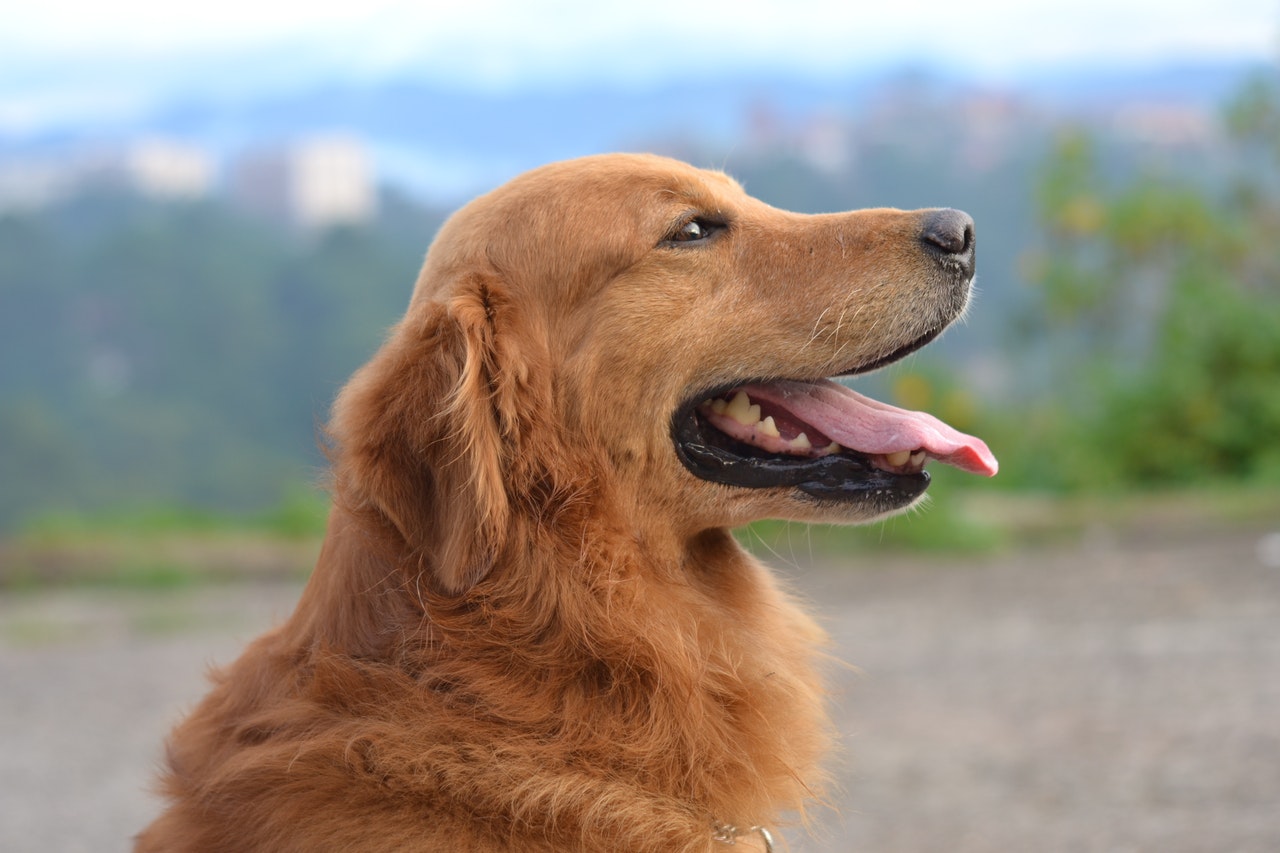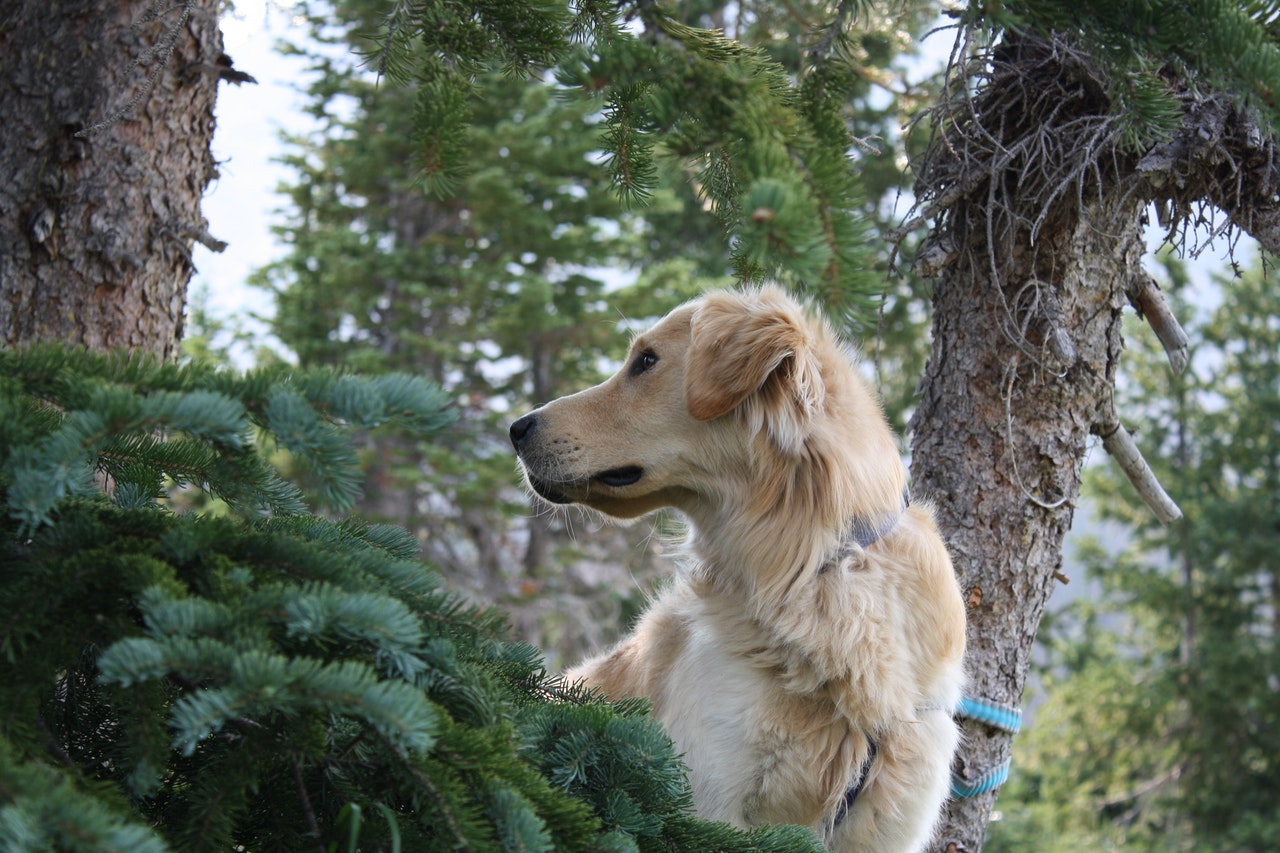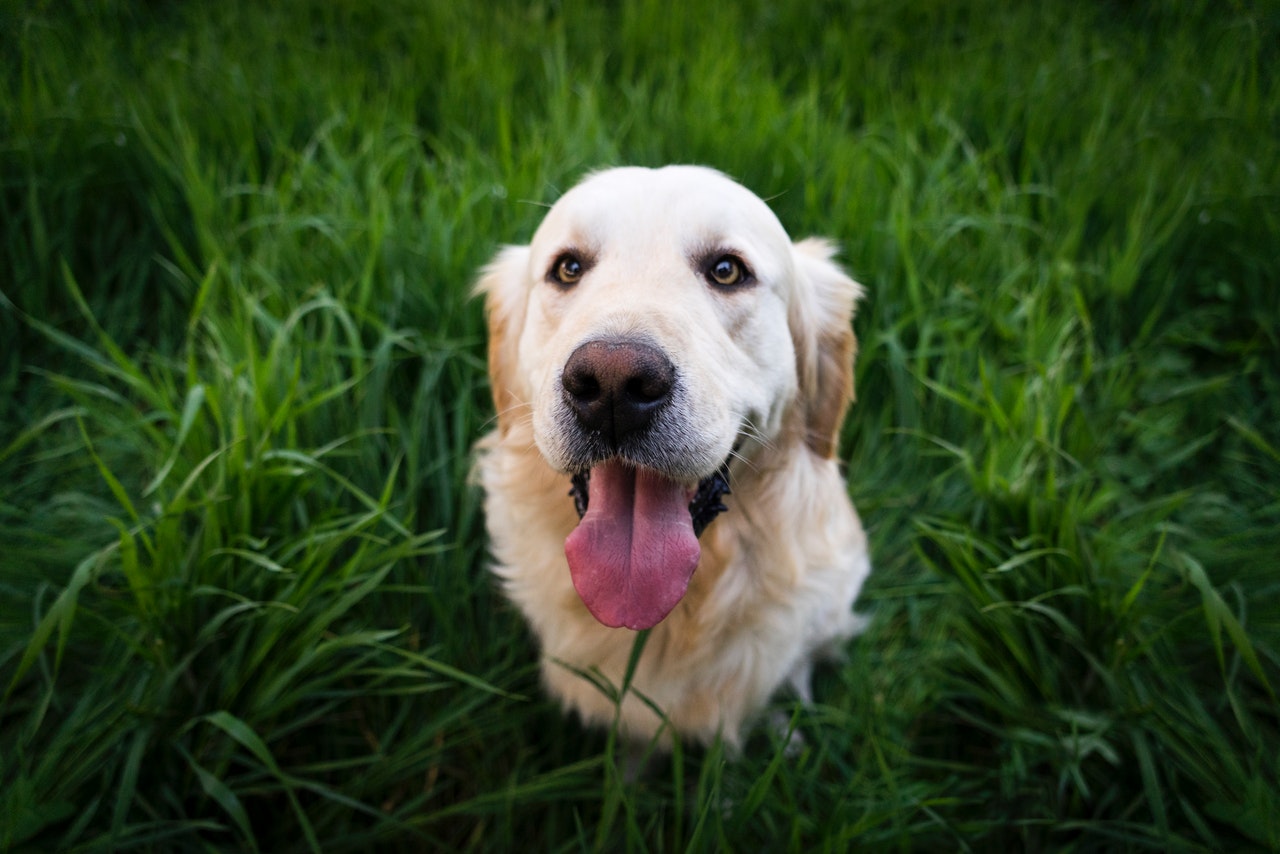Every year, the American Kennel Club releases a Top 10 list of the most popular dogs in the U.S. And while the Labrador retriever has claimed the number-one slot for the past 31 years running, the golden retriever isn’t far behind. If you intend to take your golden retriever duck-hunting, you’ll want to know how to keep your canine companion safe. From a brief history on the golden retriever’s roots as a hunting companion in the Scottish Highlands to the best modern hunting safety tips, we’ll tell you everything you need to know.

What is the best dog for duck hunting?
According to the experts at hunting and fishing-centric website Wide Open Spaces, the number-one duck-hunting dog is none other than the golden retriever. Modern-day duck hunters owe a great deal to Sir Dudley Marjoribanks, also known as Lord Tweedmouth. The Scottish baron is not only responsible for developing the much-beloved golden retriever, but he also kept meticulous records of his efforts in breeding the golden. The first goldens were a mixture of Tweed water spaniels, setters, wavy-coated retrievers, and even a bloodhound. Who knew the golden had such complicated ancestry? Lord Tweedmouth certainly did, and, thanks to his detailed record-keeping skills, so do we.
Can a golden retriever be a hunting dog?
Intelligent, patient, and eager to please, the golden retriever is one of the most popular family pets for good reason. But the very traits that make them excellent companions also serve them well in the field. They have soft, dense undercoats and water-resistant topcoats, allowing them to wade into frigid water to retrieve a hunter’s fowl. Thanks to their athleticism and instinctive desire to please humans, many hunters find that golden retrievers are uniquely intuitive for the task at hand.
While they first gained popularity as hunting dogs in the late 19th century, golden retrievers first placed in a field trial back in 1904, and they’ve been praised for their hunting abilities ever since. The American Kennel Club also notes that golden retrievers excel as working dogs and often claim top marks in sporting event competitions. In other words, this clever, affable breed is a great all-rounder in the water or in a field. No wonder goldens are one of the most popular breeds.

Are golden retrievers good for bird hunting?
Not only was the golden retriever bred for hunting, but even modern-day retrievers retain the traits bred into their ancestors. Golden retrievers are known for being intelligent people-pleasers who learn new tricks with ease. More importantly, they’re not gun-shy dogs, making them the ideal companion for bird hunters. Here are a few essential tips you need to know before you take your golden retriever on a hunt:
Make sure your dog learns basic skills first
Your pup needs to know how to follow basic commands before you take him on his first hunt. Goldens are notoriously smart and want to make you happy, but that doesn’t mean you should skimp on early training sessions. You should only progress to the next stage in training once your dog obeys commands like “sit,” “stay,” and “drop it.”
Early exposure is essential
While many golden retrievers tend to instinctively gravitate toward water, that’s not always the case. Take your pup for a swim in a kiddie pool, make sure she enjoys bath time, and never force your puppy into the water. Young puppies might be more fearful of the water than older dogs, but you can help your pooch overcome her fear with time and patience. Don’t be afraid to swim around with her. Once she sees you having fun, she’ll be more likely to positively associate water with playtime.
Show your fur baby that guns aren’t scary
Just like pups need time to get used to water, there’s also an adjustment period for spending time around guns. But you should never jump the gun — pun intended — while training your dog. Instead, expose them to recordings of gunfire while letting them see your gun. (Make sure the gun is unloaded, please. Clumsy, potentially frightened puppies and loaded firearms are a horrible combination.) Once your puppy adjusts to loud noises and the presence of firearms, you can take them out with you for target practice. Dogs have sensitive hearing, so you’ll also want to protect their ears from repeated gunfire.
Take a short trip first
Your puppy is well-trained, loves water, and doesn’t flee from gunfire. That means they’re ready to join you on a hunt, right? Not so fast. Before you take your pup out during hunting season, you’ll want to take them out in your boat first. Allow your dog to adjust to sitting beside you on the deck, and make sure she’s willing to obey you when you order her in and out of the water.
Train your pup to track a scent
Some golden retrievers will instinctively retrieve waterfowl, but you shouldn’t count on it. Instead, you should train your dog to retrieve fowl using scented dummies or duck wings. If your dog already excels at obeying basic commands, teaching him to fetch shouldn’t be difficult.

Taking your dog on a duck hunt is a unique bonding experience, but it’s one you’ll want to approach with safety in mind. Make sure your dog has adequate ear protection, never force your pooch into the water, and always keep your guns stored safely when not in use.
Editors' Recommendations
- 5 surefire ways to keep your dog off your bed and get a good night’s sleep
- Taking your dog’s collar off at night: Safe move or safety risk?
- Looking for signs your dog has ticks? These telltale symptoms mean you have a flea or tick problem
- 7 dog training podcasts we’re obsessed with
- Funny dog video: Pup has an adorable reaction to a superhero pet on TV




